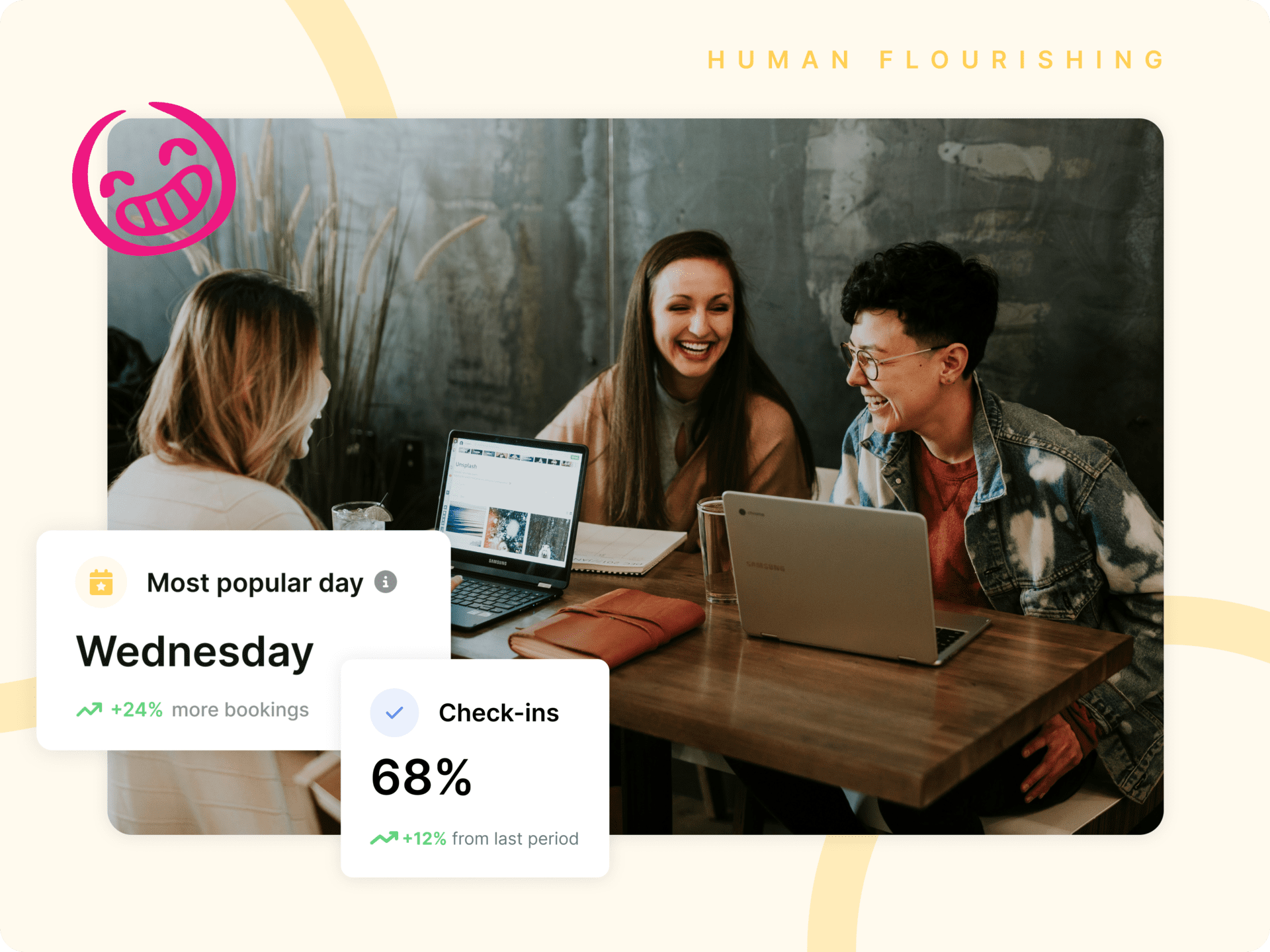How to enable desk hoteling in a Covid-safe workplace
At the end of 2019, over 75% of workplaces globally were rolling out flexible hot desk management strategies to enable more efficient use of real estate. Now, with Covid-19 accelerating the trend of remote working, good desk hoteling is fast becoming a necessity to safely return to the workplace. In fact, as the result of Covid-19’s impact on real estate, 30% of all office space will be consumed flexibly by 2030, according to a JLL survey.
What is desk hoteling?
Desk hoteling, which allows employees to reserve in advance the desk they want to use for the day but still gives your employees the freedom to choose the space they want to work in. One of the main advantages of desk hoteling is the valuable usage and occupancy data the facilities team can capture for planning purposes.
In theory, desk hoteling sounds like a better alternative to hot desking. But in the new normal, this approach can still pose a safety and hygiene issue to organizations with hundreds, or even thousands of desks in multiple office locations that now need to be managed, thoroughly cleaned and sanitized.
According to a recent Gensler survey, 68% of employees would like to see a reduced number of shared workspaces because of safety concerns when there is no process or technology in place to track whether facilities are being used and then cleaned effectively before being made available for use again.
Why should you consider desk hoteling?
A flexible desk policy integrated with the right desk hoteling reservation system can increase the ratio of employees to desks. This can potentially reduce the real estate footprint significantly, while still encouraging a more collaborative working environment. According to a PwC survey, 30% of employers anticipate reducing their real estate footprint in response to the Covid-19 pandemic, which means a higher demand for a smaller amount of spaces. So it seems flex desking is on the rise and essential to ensure employees have the spaces they need when they need them.
Maximum flexibility will be the guiding principle for the workspace in the new normal and employees will decide which space suits their needs. To reinvigorate collaboration you need a flexible workspace where your teams feel safe and comfortable and effective desk hoteling is a good step in this direction.
Making desk hoteling work
When it comes to making desk hoteling work for your organization, success is all about the implementation and investing in the right technology makes all the difference. Companies need to have proper technology in place to support the transition to flexible working.
Questions to answer include:
- How can we make flex desking work in the new normal?
- How can we make sure desks are thoroughly cleaned after use?
- How can we support employees to work safely and productively?
How to create a Covid-safe flexible desk experience
Employees need to feel safe when they return to the workplace and seeing clear measures in place to promote social distancing and additional hygiene procedures. Reducing touchpoints and clear visual communication are key components in any back to work strategy. There should be no doubt as to which desks are clean and available for them to use.
Touchless desk booking and check-in
Many organizations are already investigating how to reduce touch points in their offices, but some are looking at different touchless technology that does not require physical touch.
Employees can check in and claim a desk via their mobile app, without having to speak with anyone or touching any shared screens. Going contactless will also help manage clean desk policy more effectively by keeping desks free of cables and easier to clean.
Using data to optimize desk availability
With a lower office capacity in the new normal workplace, there is a greater need to use data to understand how desks are being used, and make better data-driven office space planning decisions moving forward with space management software. As employees make booking requests, facilities teams can access data on how different spaces and assets are being used.
For example, Wifi APs or sensors can give you data on how many people are in an area and Kadence can offer hyperlocal desk occupancy data. Analyzing this data helps pinpoint which desks and spaces employees use most – extremely valuable knowledge to ensure the reconfigured offices meet employees’ needs.
Supporting social distancing at work
With social distancing policy in mind, many organizations will need to rethink their office layout and desk planning. By integrating your IWMS systems with Kadence, facilities teams can set social distancing and density rules to manage which desks are made available for employees to use.
Kadence’s hyperlocal occupancy data and floor plan view offers real-time desk hoteling reservation and occupancy data to help monitor and enforce social distancing. Touchless check-in with the workplace app also supports contact tracing through user authentication, which records who was using a given desk and who was sitting next to them.
By integrating Kadence’s desk scheduling software with your workplace management system, desks can be freed up for maximum availability. Workflows can also be customized to notify relevant teams and service providers such as cleaners, HR or facilities so that organizations can efficiently manage their workspaces with peace of mind.
Providing clean and safe desks is now a critical requirement for every organization that wants to welcome its employees back to the workplace. The right technology for desk hoteling that reduces touchpoints and is visually intuitive can make a big difference.
Whatever strategy you adopt, if you’d like a chat with one of our team about how desk hoteling software helps you get your workplace ready for the new era of work, why not pick a time in our calendar to suit you?


